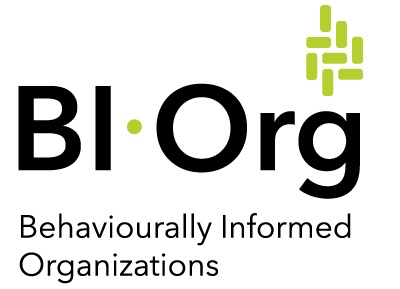Nicole Robitaille
Assistant Professor of Marketing, Smith School of Business, Queen’s University
bio:
Nicole is an Assistant Professor of Marketing at the Smith School of Business, Queen’s University. As a behavioral scientist, Nicole investigates how consumers make decisions, why they choose to engage in certain actions, and designs and develops interventions to improve consumer welfare, marketing, and policy. Her research includes work on: moral, financial, temporal, and health decision-making.
In addition to her academic work - Nicole currently serves as a Trusted Advisor and Advisory Committee Member to the Government of Canada’s Impact and Innovation Unit. She also currently serves as an Advisor to the Ontario Government’s Behavioral Insights Unit (Treasury Board), where she formally worked as Chief Researcher. Her work on increasing organ donation with the Ontario Government was awarded the prestigious Amethyst award for outstanding achievement.
Nicole received her PhD from the University of Toronto’s Rotman School of Management; her dissertation investigated consumer moral licensing behavior. She earned her MSc (Marketing) from Concordia University’s John Molson School of Business.
Website: https://smith.queensu.ca/faculty_and_research/faculty_list/robitaille-nicole.php
3 questions:
What aspects of this research agenda are you most excited about?
What excites me most about this research agenda is bringing so many different stakeholders to the table to build something together. Often in academia our work is somewhat siloed, where it is distributed and impacts other academics. However, work in behavioral insights has far reaching implications. Working alongside other top academics in the field together with organizations and policy makers to ensure this work can have the largest impact possible, not just to theory, but to practice, is what excites me most.
Of all the work you have done, what project / paper is your personal favourite and why?
My recent research on organ donor registrations is probably my favorite to date. I believe it makes important practical and theoretical contributions to our understanding of how to motivate individuals to take action and overcome their status quo bias. However, this work may not only change the way we think, but also has the potential to save lives. We were able to increase real organ donor registrations in the field and changes have been made to the Ontario organ donor registration process as a result of this research. It is the only time in my career that I have cried (happy cried) seeing the results of a study that I ran. Even even one life is saved as a result of this work, that means more to me than all the possible citations I could get in my lifetime.
Which is the one paper or book that you wish you had written (but have not)?
Slovic, P. (1995). The construction of preference. American Psychologist, 50(5), 364-371. http://dx.doi.org/10.1037/0003-066X.50.5.364 This was one of the first articles to spark my interest and personal journey into the behavioral sciences. The article summarizes and presents research suggesting that preferences might not be something we hold and maintain, but rather are constructed when elicited. This really changed the way I think about decision making. If preferences are constructed in the moment, that has far reaching implications for the breadth of factors that can and likely do affect our choices, preferences, and behaviors.

